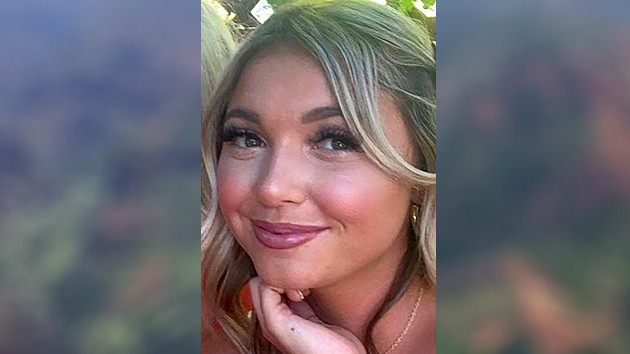(MOSCOW, Idaho) — The family of Kaylee Goncalves, one of four students killed in the University of Idaho murders, is desperate for a trial date to be set as the case returns to court Friday.
Goncalves, 21, one of five siblings in a close-knit family, was killed in November 2022, just weeks before she was set to graduate college early and move to Texas to start her career.
The family is “in limbo” until a trial begins, Kaylee’s mom, Kristi Goncalves, told ABC News. She said Kaylee’s siblings don’t want to take new jobs, move away and risk missing the proceedings.
The high-profile case has also largely been veiled in secrecy due to a gag order in place — and the Goncalves family thinks more information needs to be revealed.
“It keeps being locked away from the people, and it encourages — it, pretty much, manifests — an environment where speculations and rumors and conspiracies thrive,” said Kaylee’s dad, Steve Goncalves.
In the early hours of Nov. 13, 2022, roommates Kaylee Goncalves, Madison Mogen and Xana Kernodle, as well as Kernodle’s boyfriend Ethan Chapin, were stabbed to death in the girls’ off-campus home. Two other roommates survived.
Steve and Kristi Goncalves said there was an indication their daughter fought for her life.
The way the bedroom was set up, Steve Goncalves said, if someone came in, “You can’t get out of that room.”
“Completely, totally trapped,” Kristi Goncalves said. “The bed was the entire room — could barely open up the door without swiping the foot of the bed.”
The suspect, Bryan Kohberger, who was a criminology Ph.D. student at nearby Washington State University at the time of the gruesome crime, was arrested weeks later. He has pleaded not guilty to four counts of first-degree murder and one count of burglary.
The house where the four students were killed was demolished on Dec. 28, 2023, despite objections from the Goncalves and Kernodle families.
The Goncalves said knocking down the house would “destroy one of the most critical pieces of evidence in the case” before a trial date was even set.
“Jurors are notoriously unpredictable and they tend to make decisions on a variety of facts and circumstances,” the family said in a statement last month. “It would be foolish of us to try and foresee what they will want or need to make a just verdict in this case.”
University president Scott Green said in December, “It is time for its removal and to allow the collective healing of our community to continue. After the trial was delayed earlier this fall, both the prosecution and defense asked for access to the house and have both gone into the house in the last two months. Neither has asked for the house to be retained.”
Chapin’s family also supported the demolition.
Kristi Goncalves said that when university officials notified her via email that the house would be demolished over winter break, she “lost it.”
Then, on the morning of Dec. 28, “I was waiting for a Hail Mary,” she said. “I was in denial. … and I turned on the TV — and the house was being torn down.”
The equipment was “actually taking a swipe at Kaylee’s room right when I turned on the TV,” she said. “It was horrible.”
The Goncalves are hoping a trial date will be set at Friday’s court appearance, during which there will be arguments over Kohberger’s requests for Judge John Judge to reconsider his decision not to toss out the charges.
Kohberger’s defense had previously made two different attempts to get the indictment dismissed. In one, the defense argued that the grand jury was given inaccurate instructions — that they used the wrong standard of proof. In the other, the defense argued that prosecutors withheld evidence that might aid Kohberger in defending himself, and biased the grand jury. The judge denied both in December.
“We got to get this case over,” Steve Goncalves said. “Let’s do it. Let’s stop playing these delay tactics, let’s just get it done.”
If convicted, Kohberger could face the death penalty.
Kristi Goncalves said, “Justice is such a hard word for me because … there is no justice — him dying is not gonna bring her back.”
“This is like a book,” Kristi Goncalves added. “That chapter will be closed, but the book never will be,” she said.
ABC News’ Sasha Pezenik contributed to this report.
Copyright © 2024, ABC Audio. All rights reserved.












